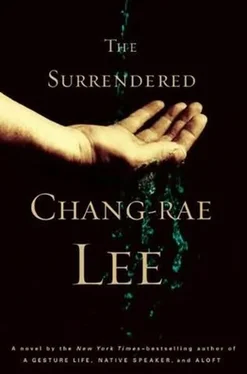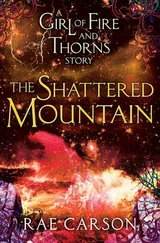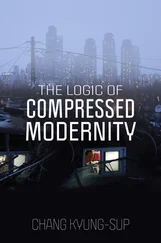“You mean here?”
“Yes.”
“What is his name?” Bruno asked.
“What do you want with him?” she said, her voice suddenly less friendly. “Has he done something wrong?”
“This man is aiding a lady who seeks him. She is his mother.”
“I see,” she said, this time inspecting Hector carefully. “His name is Nick Crump.”
They both looked at Hector and he acknowledged he was the one. But he was unsettled by how quickly they located him: it was as though Nicholas were hoping to be found, making no effort to obscure his trail. At the other shops Hector thought he was prepared to come upon him, but now his natural impulse was to turn and head for the street, to get out of there before any serious complications set in, everything having revved up too rapidly to full, messy speed. Bruno asked if he was working today and Laura said he was out delivering a purchase to a hotel. He would be back soon enough. They each looked after the gallery four days a week, overlapping one day; “Nick” had apparently taken the semester off from graduate study in art history in Bologna. Somewhat coolly she asked Hector how he knew his mother, and if he lived in London as well. He didn’t know how he should answer, as she clearly had a more intimate interest than just that of a fellow employee. He could only manage to say he was a family friend. But he muttered it lamely and she wasn’t impressed.
She then stated: “It’s terrible, isn’t it, how she and her attorneys are trying to disinherit him? After his father dies, and still she can be so horrible to him. Is this why she is seeking him? Is she regretful now?”
“No,” Hector said, again for lack of anything better, impressed by the passion Nick’s apparent storytelling had inspired in this intelligent, attractive woman.
“Then what is it? Do you have a message for him? Something final?”
Hector’s non-reply frustrated her, only stoking her indignation, and after an uncomfortable silence in the gallery, Laura walked to the door in her clicking high heels and held it open.
“I am sorry, but I feel I must ask you to leave now. If you tell me which hotel you are staying at, I will let him know and perhaps he will contact you. But that is up to him. I don’t feel, however, that you should stay any longer, as you are not here as a customer of the gallery. Please respect this and understand.”
Bruno began rattling away at her in a sharp Italian, but of course Hector did understand, and motioned, him to cease. All he had hoped to do was to locate Nicholas, to let him know his mother wished to speak to him and wait to see if he would agree; if he didn’t, there was really nothing Hector or anyone else could do, no matter what June wanted. Yet what exactly was Hector wanting? Certainly not this. Not this at all. The prospect of having to talk to Nicholas face-to-face at any moment was making him feel as though his insides were being carved out like a gourd, which was the reciprocal sensation of wanting to fill the hollowness with a week’s worth of booze, to raise a small cask of some local liquor to his mouth, to make a river of his throat.
He motioned Bruno to the door and had already turned when a tall, slim young man on a pale-green-and-white motor scooter rolled up and parked in front of the plate glass. He wore dark aviator sunglasses, dark slacks, a blue-and-white-striped dress shirt. Sleek, polished loafers. He pushed the scooter up onto its kickstand and approached Laura, who was still standing in the open doorway. He looked inside, in the direction of Hector and Bruno, but could see nothing for the reflection in the glass, and as he entered, Laura met him, and he touched her hand, only briefly, smoothly unclasping it when he saw there were customers present. Otherwise he surely would have kissed her. Laura glanced back at them and muttered a few words in his ear, but his expression didn’t change; if anything, his jaw seemed to ease, and he took off his sunglasses and approached them directly.
“Good afternoon, sir,” he said to Hector, extending his hand, his accent tinged British, or maybe vaguely Continental. Hector shook his cool, bony hand. Nick leaned forward and said, quite softly, “Could we chat elsewhere? All right? There’s a café around the corner.”
He kissed Laura lightly on the cheek and they whispered a few words in Italian. He led them down the street to the corner café. Bruno had a coffee at the bar while Hector and Nick took a table inside. Nick immediately lit a cigarette; he was a distinctive-looking person, his cheekbones jutting out quite sharply, his nose narrow and delicate. He had wide, large brown eyes and wavy dark hair that he wore in a long, loose style, the ends tucked back behind his ears. He could certainly be Eurasian, in Hector’s opinion, though he didn’t much look like his old photograph. Hector couldn’t see much of himself there, or June either, but then what did he really know? The only varieties he was expert in were the various clans of his family’s tiny Irish-blooded universe, and then maybe the demi-human strains that flourished in the dank, lightless ecology of Smitty’s, identifiable by the bulbous, angry nose, the mustardy pallor, the sorry teeth and hair. Nick was very handsome, but in a perfectly original way. At the orphanage there had been a number of mixed-blood kids, a natural consequence of the war. They were sometimes teased or shunned by the others, but to Hector they looked like no one in creation with their wide, petaling eyes and buttery, earthen coloring. Yet despite their beauty and hybrid vigor he couldn’t help but see them as being somehow vulnerable, too, doomed to their singularity, their species of one, which mirrored, strangely, how he had always felt inside. They could also appear so different from moment to moment, shape-shift when not even meaning to, as Nick was now, the mixing inside him veiling and unveiling this feature and that, depending on the angle, or the light. But one could make the argument: Nick was just about his height, if not build; and he thought he could see something of June’s mouth in the set of his, that certain crimp in her lip, that utter resolve.
The waiter brought their order, a coffee for Nick, nothing for Hector. But Nick didn’t drink his, just smoked and rolled his knuckles on the table. He wasn’t looking at Hector, either, but rather glancing over at Bruno, who was standing at the bar, then to the door in the back, as if calculating what it would take to get away.
“Well, are we going to do this?” he finally said. “I’m not going to say anything more until I have a lawyer.”
“I’m not a cop. I know about the stealing, but that’s not why I’m here.”
“You can cut the bullshit.”
Hector didn’t reply, just looking at him.
“So who the hell are you?”
Hector only told him what he’d said to Bruno, to Laura-that he was his mother’s helper.
“Well, Jesus Christ!” Nicholas said. He nodded toward Bruno, who was watching the soccer match on the television behind the bar. “What about him?”
“He’s a taxi driver.”
Nicholas shook his head. He chuckled at himself and drank his espresso. Then he rose to leave. Hector got up and gripped his shoulder, firmly pressing him back down. Nicholas’s eyes flashed in anger and his neck tensed but he instantly mastered himself, Hector almost feeling through his fingers how the young man geared himself back.
“So what does she want?” Nick said, lighting another cigarette. “And why did she send you? This is all very bizarre ,” he added, intoning the word like a Frenchman. Every other word of his sounded as though he had grown up in a different place. Then he said, with an attitude of propriety, “We’re getting along just fine writing letters. If this is about the money she’s sent, I’m sorry, but it’s all spent. I’m quite broke, in fact.”
Читать дальше











